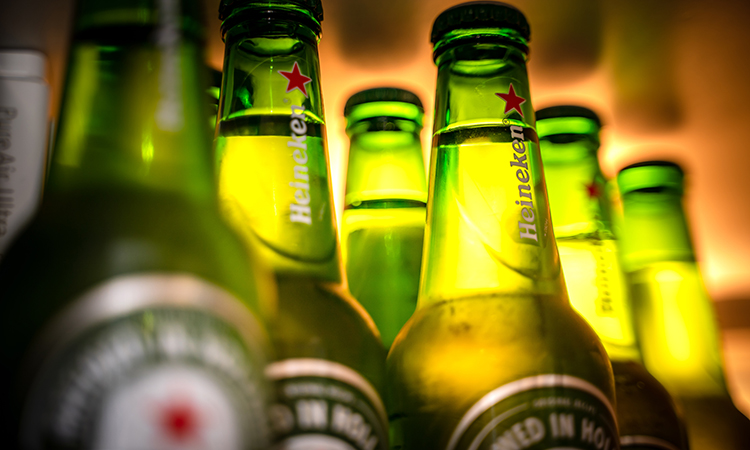New partnerships fuel Heineken’s journey to Net Zero emissions by 2030
- Like
- Digg
- Del
- Tumblr
- VKontakte
- Buffer
- Love This
- Odnoklassniki
- Meneame
- Blogger
- Amazon
- Yahoo Mail
- Gmail
- AOL
- Newsvine
- HackerNews
- Evernote
- MySpace
- Mail.ru
- Viadeo
- Line
- Comments
- Yummly
- SMS
- Viber
- Telegram
- Subscribe
- Skype
- Facebook Messenger
- Kakao
- LiveJournal
- Yammer
- Edgar
- Fintel
- Mix
- Instapaper
- Copy Link
Posted: 18 September 2024 | Ben Cornwell | No comments yet
Heineken announces three new technical partners for its global integrated Net Zero Production (i-NZP) programme, aiming to drive carbon reduction in its breweries by the end of the decade.


Heineken has announced a major advancement in its integrated Net Zero Production (i-NZP) programme, joining forces with three new partners: Royal HaskoningDHV, NIRAS, and Arcadis. These organisations will bring technical expertise to assist Heineken in reaching its goal of achieving net zero emissions for Scope 1 and 2 by 2030.
The Science Based Targets initiative (SBTi) defines Net Zero as a 90 percent reduction in emissions across Scope 1, 2, and 3. Any remaining emissions must be offset with permanent carbon removal solutions. In 2023, Heineken’s Net Zero and FLAG (Forest, Land, and Agriculture) targets were approved by SBTi, marking the brewer as the first in the world to reach this sustainability milestone.
The brewing company’s i-NZP programme, which has already enrolled over 40 of the company’s global production sites, aims to significantly reduce carbon emissions at Heineken’s production and logistics sites by focusing on lowering energy demand and transitioning to renewable energy. With this strategic partnership, the brewer expects to cut emissions at the involved sites by 30 percent by 2030, compared to its 2022 baseline.
Reducing energy and transitioning to renewables
Royal HaskoningDHV, a Dutch engineering consultancy, will be working closely with Heineken to drive down energy demand and introduce renewable energy solutions at breweries. Recognising that energy needs vary globally, Royal HaskoningDHV will provide tailored approaches for each site using a dedicated team of engineers, data scientists, and financial specialists.
Sabine Bink, Global Director of Industry and Buildings at Royal HaskoningDHV, shared the company’s enthusiasm for supporting Heineken:
“It is great to be supporting Heineken’s efforts to reduce the CO2 footprint of their production sites. Building on our longstanding relationship since 1886, we are committed to going the extra mile working towards their Net Zero target.”
Sabine added, that having designed many of Heineken’s sites, the engineering consultancy know the brewing company’s “processes well” and will start collecting energy usage data, advising on feasible reductions, and creating tailormade roadmaps per brewery to help them reach their 2030 goals.
The partnership builds on a successful collaboration with Siemens, where significant energy savings were identified at Heineken breweries. Now, with Royal HaskoningDHV, NIRAS, and Arcadis onboard, Heineken aims to scale up this approach.
Collaboration key to Heineken’s net zero strategy
Heineken’s Chief Supply Chain Officer, Magne Setnes, emphasised the importance of collaboration in achieving the company’s carbon reduction targets: “Reaching Net Zero in Scope 1 and 2 by 2030 cannot be accomplished in isolation. Collaboration with experts like Arcadis, NIRAS, and Royal HaskoningDHV is essential to achieve this milestone at the speed and scale we need.”
This collaborative approach aligns with Heineken’s long-term sustainability strategy, which focuses on reducing energy demand, improving energy efficiency, and investing in renewable energy sources.
Related topics
Beverages, Environment, retail, Sustainability, Trade & Economy
Related organisations
Arcadis, Heineken, NIRAS, Royal HaskoningDHV, Science Based Targets initiative (SBTi)








